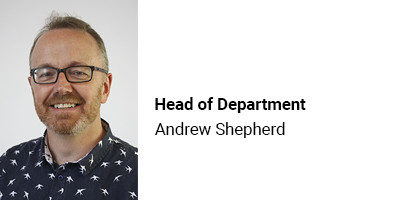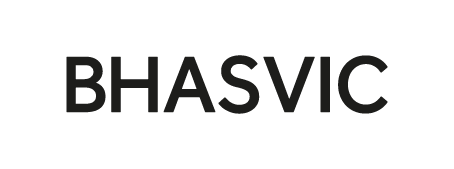Business BTEC
Online Application Selection: National Certificate in Business BTEC Level 3
Qualification at End of Year 2: National Extended Certificate in Business BTEC Level 3
During Year 1 you will study for the National Certificate, for Year 2 you will progress to the National Extended Certificate
Exam Board: Pearson; Specification
Course Entry Requirements: 4 in English Language GCSE or 4 in Maths GCSE.
Please make sure that you have understood the overall entry requirements to study at BHASVIC. These are available here and outline the GCSE grades you need to take up one of the Study Programmes at the college.
Length and size of qualification: 2 year single course
Timetable hours: 4.5 hours per week
Assessment method: A combination of written / computer-based exams and coursework
BHASVIC Department: Business and Economics
What will I study?
This vocational course will allow you to develop a critical understanding of business behaviour and the business environment by investigating and analysing real-life businesses. You will study leadership, attracting customers, recruiting and nurturing employees, managing finances, measuring business success, and developing strategic plans. You can then use this invaluable knowledge to succeed in any career! This level 3 course will give you the equivalent of one A Level over two years of study. 3 out of 4 topics will be studied by completing coursework investigating at least one business, and the 4th topic is assessed through an exam in the second year. Before and throughout this course, we encourage you to read up on businesses (brands, events, organizations, individuals, etc.) that you are each interested in. We also expect students to take an interest in current affairs so that you all can begin to understand and evaluate the causes and effects of consumer, business, and Government behaviour. You will also develop your skills of communication, working independently, teamwork, problem solving, and evidence-based decision making, all through a collaborative and empathetic approach.
Is this course right for me?
This course is ideal for students who are passionate about business and are either planning on pursuing a career in business or starting up their own business. It is a subject that requires students to learn theories, apply them to real businesses through their research, and assess their effectiveness. The course will suit you if you prefer coursework to exams and want the chance to carry out a detailed investigation of different businesses. You do need to be able to cope with constant and tight deadlines, so organisation is very important. There is a significant element of reading and writing because of the coursework, but also an expectation that students discuss and question at every opportunity. Students are expected to study given business theory before every week so that we can use this self-taught knowledge to explore real business case studies and effectively answer coursework activities. Developing these skills is essential to growth both professionally and personally. Business complements all subjects because every student will be an employee at some point, whether as a dancer or as an engineer, so will benefit from critiquing businesses with understanding and empathy.
Listen to what our students have to say about Business
Frequently asked questions
The content is very similar and they’re both level 3 qualifications which means that, for example, they are both awarded the same UCAS points. The main difference in the two qualifications is in how they are assessed. The Business A Level is assessed through three 2-hour exams at the end of the second year, whereas the Business National BTEC is assessed through one coursework assignment and one externally assessed unit during each year you study the course.
We only ask for a grade 4 in Maths GCSE because Business and Economics students will be analysing data using basic arithmetic. There’s nothing more complicated than arithmetic in our subjects!
All and any of them! Always choose subjects that you are genuinely interested in. If you want to study an Economics BSC degree at university then you do need A Level Maths. Economics and Business BA degrees don’t require Maths A Level.
We expect a minimum of 4 hours of independent study per subject per week, as does every other BHASVIC subject.
Where next?
This subject can take you in many different directions, such as Marketing, HR, Finance, Management, and International Relation. It can provide you with a considered understanding of the functions that are relevant to all employment routes and sectors of the economy. Whatever your skill set, there is a role within a business to suit you, from customer-facing roles to financial analysis. The skills you gain on the course will allow you to make a valuable contribution to businesses in the future. Degree apprenticeships also exist for students to progress on to after BHASVIC. Useful websites to research careers and wider progression options could include the All About Careers, The Apprenticeship Guide, and the Chartered Institute of Management. This course will encourage you to create a supportive and positive social and professional network for your career journey.
Career and university opportunities - https://twitter.com/BHASVICBusEc
BTEC success stories - https://btecworks.com/student/courses/business-enterprise/
Apply View DepartmentHigher Education - Business
Last year, 145 BHASVIC students went on to study Business at 54 different universities.
Due to the wide range of degrees available crossing Management, Marketing, Finance and Accounting it remains year on year one of our top two subjects for University study. Examples of degrees chosen by students included International Wine Business, Commercial Management and Quantity Surveying, International Business Management and Spanish and Sports Business Management. Entry to University can be through studying Business A level or BTEC.
Should I study Business at degree level?
There is huge range of business degrees available, from business or business management to more specialised degrees. Teaching methods on a business degree can include lectures, seminars and case studies. Options can include a placement year with an employer and study abroad. Modules included in business degree can include business law, marketing, accounting and finance, personal skills development, business analytics /quantitative methods for business (maths-based analysis).
You can choose to study Business or a closely related subject, for example
· business management
· business administration
· accounting
· human resource management
· marketing awareness
· business analytics
Entry Requirements
You don’t usually need specific subjects. For some related subjects, such as Economics, Maths A level is sometimes required.
Top Universities for Business
St Andrews, Kings College, Warwick, Bath, Loughborough Durham, Lancaster, Leeds, York – all very high student satisfaction scores UCL, Exeter, Glasgow, Birmingham - all with top graduate prospects
Many of our students choose a combined degree - applications from our students have included
· International Business and Management
· Banking and Finance
· Marketing and Management
· Finance and Investment
· Equine Performance and Business Management
Example entry requirements (please check):
A-Level/BTEC equivalents:
Exeter AAB (A level) / DDM (BTEC) Essex BBB (A level) / DDD (BTEC) Bristol UWE (foundation) DD (A level) / MM (BTEC)
Why not try a foundation degree or higher apprenticeship?
For example: Civil Service fast track
Some examples of Business & Finance degrees that our BHASVIC students have gone onto study in the past few years are:
· Accounting, Finance and Economics (with Integrated Foundation Year)
· Banking and Finance
· Business and Events Management
· Business and Law
· Business Management / Spanish
· Business of the Creative Industries
· Fashion Marketing and Consumer Behaviour
· Finance, Investment & Risk- 4 years with sandwich year
· International Business Management with a Year Abroad
· Law with International Business
· Marketing & Advertising with Business Experience
· Marketing Communications with Public Relations
· Music Business
· Quantity Surveying and Commercial Management (with Foundation Year)
· Sports Business and Entrepreneurship
· Sports Marketing
